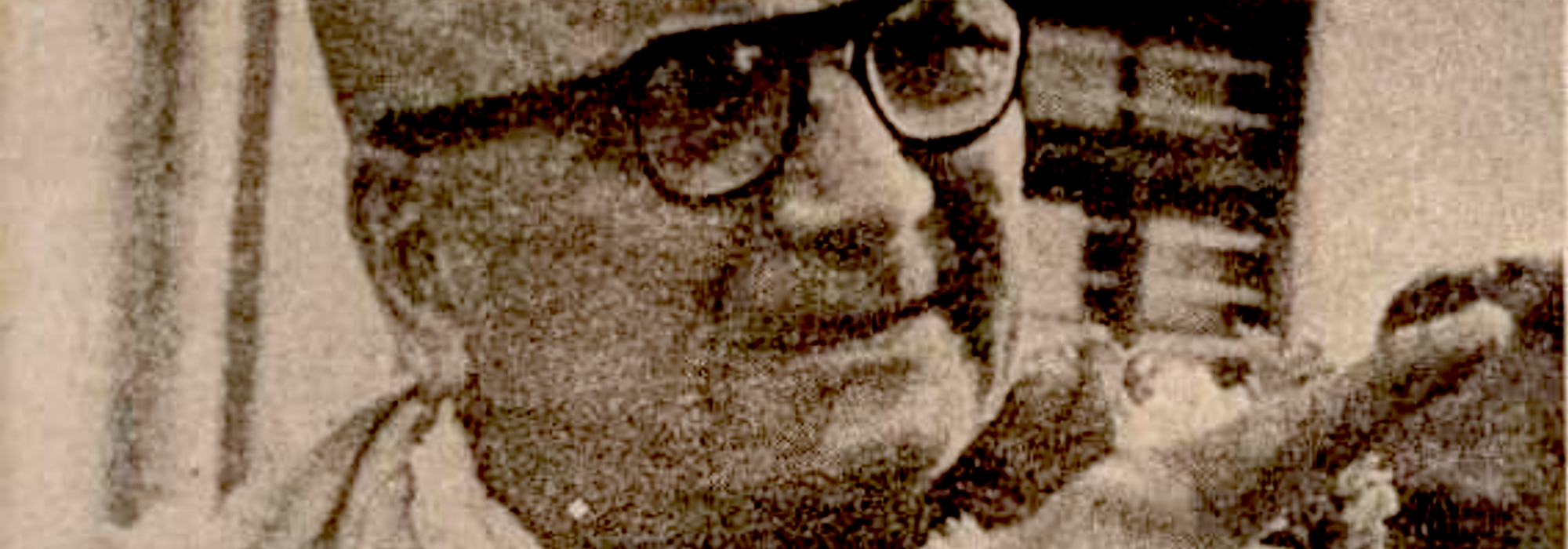At this long distance in history, it sounds incredible, insane even, when we hear somebody utter “conscience” and “Congress Party” in the same breath. However, thanks to the overarching and overreaching influence of Mohandas Karamchand Gandhi, around the time of Independence, the public regarded the Congress Party not merely as a patriotic and nationalist organization but a moral outfit as well. Needless, there is an inseparable relationship between the words, “conscience” and “moral.”
This is a reasonable starting point to examine DVG’s critical assessment of the Congress after Independence. The history of the Congress Party, especially after Gandhi helmed it, is filled with rich and detailed information as to its own claims of being the conscientious fighter for India’s freedom, and DVG’s substantial critiques can be summed up as a thirty-year-long, spirited effort at showing it the mirror. As we shall see, each time he showed it the mirror, the image that was revealed became progressively blacker and cracked.
However, DVG’s criticism of the Congress was not the superficial and transitory writing of a professional political columnist or journalist. It had far deeper and incredibly profound roots. In no particular order, these roots fall in three broad categories:
- DVG’s keen understanding that democracy was just the latest experiment in humans governing themselves, a facet we have seen in an earlier chapter.
- His clear grasp of the limitations of democracy and the pitfalls of applying it to a spiritual civilization like Bharatavarsha.
- As a participant, votary, and eyewitness of the trajectory of the Congress Party from its earliest days.
Thus, when DVG stood rock-solid behind the Congress in the advocacy of Responsible Government, his support was informed, well-studied and came with caveats and warnings. Equally, when he criticized the cult of Gandhi and the growing trend of violent street-level agitations, it was in the spirit of a surgeon who knows the fatal perils of an untreated festering wound.
***
DVG’s brilliant and sustained critique of the Congress Party after India attained political independence merits an independent scholarly study. The Public Affairs monthly that he edited under the auspices of GIPA is simultaneously a work of objective history of the all-encompassing downfall of Bharatavarsha, which the Congress transformed as an ill-defined “India.” The magazine spared no topic: politics, health, literature, Hindu institutions, the English language, education, public morals, revolutionary ideas, industrialization, parliamentary affairs, law, police, corruption, local issues, global developments, Hindu epics and Puranas, space exploration, panchayat, temples, art… Barring some stray essays, these issues make for truly painful reading. DVG’s junior counterpart who was an equally trenchant critic of the Congress Party was the renowned Kannada literary eminence, Masti Venkatesha Iyengar. Like DVG, Masti skewered the Party and its ministers in his monthly Jivana with honest mercilessness.
In hindsight, it can be reasonably said that Dr. S.L. Bhyrappa’s epic novel, Thantu is a highly artistic narration of the story of this downfall of Bharatavarsha that we read in the issues of Public Affairs and elsewhere.
A shrewdly-buried truth of recent history is the fact that the Congress Party was widely hated in the immediate aftermath of India’s independence. An out-of-print work, Betrayal in India by a Left-leaning editor and journalist, D.F. Karaka, published in 1950 offers a brutal account of the aforementioned truth. The picture we get of the India just eight months after Independence is not only unflattering but repulsive. Congressmen who were proud and celebrated freedom fighters become dealers in illegal imported cars; they are shown to be tampering with the value of national currency. These frugal freedom fighters now acquire bungalows and scores of cars in multiple cities. The more farsighted Congressmen become “traders of patriotism.” State Congress Governments use the dreaded “Security Measures Act” to physically wipe out their political opponents and critics. It is a testimony to the truth of what Karaka has written in his explosive but depressing book that he had to get it published in London.
This is the darker backdrop in which to understand and marvel at DVG’s patience and tempered criticism of the Congress Party. Given the sheer volume of this criticism, one can consider only a few representative samples. As we have seen earlier in DVG’s stinging response to the arrogant secretary of the Mysore Congress Board who demanded slavish obedience, DVG realized that by the mid-1930s, the Congress had ushered in a culture of party-cracy under the cloak of democracy. He delineated its stark nature in a masterly lecture at the Indian Institute of World Culture[1] in 1955:
The party junto lays down the law and the ordinary member has to put his judgement in suspense. This abdication of responsibility for independent thought and conscientious decision by the average party member of a legislature marks the Achillean Heel of democracy. Without party, democracy stands crippled; with party, it walks awry. Political thinkers have been racking their brains for a way of reconciling loyalty to party with loyalty to country and conscience.”
DVG’s incessant warnings against adopting democracy in haste, without first acquiring the requisite moral, ethical, and educational training had come true in a nightmarish fashion. We can consider two relevant quotes to illustrate this more fully.
The first[2] is by George Orwell.
The words democracy, socialism, freedom, patriotic, realistic, justice have each of them several different meanings which cannot be reconciled with one another. In the case of a word like democracy, not only is there no agreed definition, but the attempt to make one is resisted from all sides. It is almost universally felt that when we call a country democratic we are praising it: consequently, the defenders of every kind of regime claim that it is a democracy, and fear that they might have to stop using that word if it were tied down to any one meaning. Words of this kind are often used in a consciously dishonest way. That is, the person who uses them has his own private definition, but allows his hearer to think he means something quite different.
Orwell could have well been describing the Indian National Congress Party. However, Orwell’s intellect, no doubt brilliant, merely stops at this and we should not fault him for it because even brilliant people are hemmed in by the limitations of their cultural ambience. This is what DVG[3] does:
The dominant concept of polity in Hindu India is that the State is a single undivided entity, the king being…the head of the family. It could…be described as a “Crowned Republic.” This was a combination of Monarchy with Democracy. Dasaratha and Dharmaraja had the ready and instinctive support of the entire body of people. The king was merely the head of the…[Janapada]. The State had not been divided even as the Government and the Public…The dominant feature of the present Brummagem Constitution, adopted from the British, is the bifurcation of the State into (1) The Government…(2) the Opposition. This is a direct contradiction of the Indian ideal…Now the authority of the State is vested in one whose business is necessarily manipulation for office. Unless the man at the head…is pulled out of office, there is no chance for the head of the Opposition. Their rivalry is a natural phenomenon…this feature of the Constitution…is the métier of all evil of corruption and nepotism and inefficiency in the administration.
The second quote is by the British-Canadian novelist Arthur Hailey whose criticism[4] of democracy, especially the American variety, is sharper.
Americans see democracy as a remedy for all ills-to be taken three times daily like prescription medicine. It works for them. Ergo - it should work for the world. What America naïvely forgets is that for democracy to function, most of a populace must have something personally that is worth preserving.
This is precisely why we see DVG repeatedly stressing on and obsessing over the minute details of the lives of real people in the sense of citizens hailing from all walks of life. This deep and abiding concern beautifully comes to life in his Jnapakachitrashale volumes where he writes about masons, bullock cart drivers, small business owners, Sadhus, Avadhootas, hoteliers, teachers, and an aged beggar-couple. The same spirit, the same feeling reveals itself in his daily interactions with flower-sellers, his household help, and scores of other proverbial ordinary men and women. And in the realm of the political State, DVG gives an eightfold list[5] of “minimal requisites of welfare” of the people in any country. The last item in this list is also the most important: “leisure for the cultivation of the mind and the spirit.”
As witnesses to the contemporary world dominated by uninterrupted distraction, an outcome of planned technological obsolescence, we can easily verify that leisure has been the most profound casualty. A prime disaster in the dystopian future that Aldous Huxley predicted in his Brave New World Revisited has already come true: entertainment—a major component of leisure—has been defined by forces beyond our control and we are willingly, gladly paying money to be entertained. The trifling matter of the spirit has now been successfully branded as a superstition.
To be continued
Notes
[1] Towards a New World Order: Lecture delivered at the Indian Institute of World Culture, Bangalore, p 15. Emphasis added.
[2] George Orwell: ‘Politics and the English Language’ First published: Horizon, London, April 1946.
[3] D.V. Gundappa: “Crowned Republic,” Public Affairs, Vol. XIX-6, June 1975, p 122. Emphasis added.
[4] Arthur Hailey: Evening News, Open Road Media, 2015
[5] Towards a New World Order: Lecture delivered at the Indian Institute of World Culture, Bangalore, p 7














































